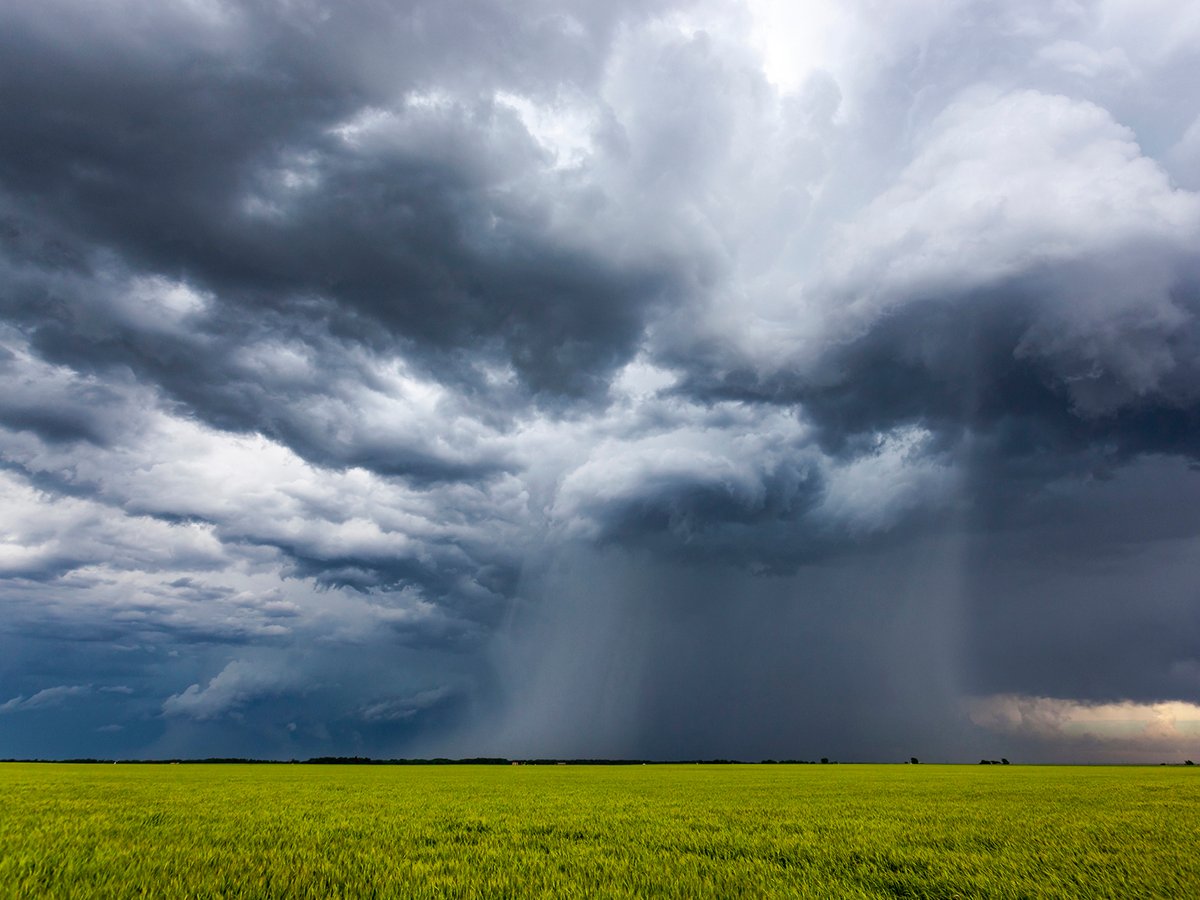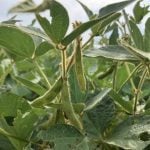The first organic dairy co-op in Manitoba is expected to open this November.
Susan and Larry Black started changing their traditional dairy to a certified operation four months ago.
“We won’t have certified fluid milk until the fall of ’08,” said Susan Black, adding that plans to establish a packaging, marketing and distribution chain are still being hammered out.
The Blacks prefer to work with processors based in the province who are committed to the local industry for the long term, she said.
Read Also

Extreme rain increases as planet warms
In this issue, we are going to wrap up our look at extreme rainfall by examining the different weather patterns that tend to be associated with these rainfall events.
To ensure a steady supply of organic milk, another three Manitoba producers plan to change into organic dairies.
“We’re pretty excited about it. It’s a good opportunity. We’re looking at maintaining some local control in the marketing so that the farmer gets some value-added in the chain,” said Black.
The co-op received a boost from an Ontario co-op, which markets a range of organic products including milk, butter, cheese and eggs under the Organic Meadow brand. The Ontario group had been shipping milk from its producer base in Ontario to British Columbia. On the way back, they were dropping off leftovers in Manitoba.
“So that milk was really overtravelled and wasn’t fresh,” said Black. “They came to Manitoba to see if they could get local production started.”
From these efforts, the Manitoba Organic Milk Co-op Ltd. was formed. Just how the new entity will mesh with the Ontario group is still the subject of negotiations, said Black.
Like all milk in the province, organic milk production is supply managed by the Dairy Farmers of Manitoba, so producers are required to buy quota. Quota needed to milk one cow costs in the neighbourhood of $25,000.
“For someone who is interested in coming into the industry, it makes it pretty cost-prohibitive.”
Farming on a half-section near Deloraine, Man., since 1978, the Black Family Farm, which includes son David and his girlfriend Ashley, rents additional land for a total of slightly more than 1,000 acres. Their grain land was certified by the Organic Producers of Manitoba, or OPAM, in 1996. The Blacks milk about 50 Holstein cows, one of the smaller herds in the province.
At retail, organic milk fetches about $3 per litre, said Black. That’s about twice the average 2006 consumer retail price of regular milk at $1.34 per litre in Winnipeg.
After running a conventional dairy for 23 years, they decided to make the switch partly out of a desire to tap the higher profits of a market niche, as well as to continue their long-standing preference for organic production.
“We were always interested in organic dairy, but there was no segregated system for the milk,” said Black.
“It’s a big project to set up the transportation, the processing, marketing, distribution, and all that. Plus, we had to learn some new techniques.”
Making the switch seemed overwhelming at first, but they followed through because they felt it was a worthy goal.
The project was assisted by the provincial agriculture department plus OPAM and the Manitoba dairy farmers group.
“The political will is there. The Dairy Farmers of Manitoba also see it as a market that needs to be filled,” she said.
“We’re really lucky to have so much political will behind us.”
At first, the Blacks wondered about the technical side of raising organic livestock, and the implications of abandoning the modern arsenal of treatments available to conventional producers.
But through the use of homeopathic strategies and simple mechanical devices such as exhaust air ducts in their barn that disrupt and suck out flies, they have found that keeping their cows healthy is possible.
“We’ve had excellent results. We thought our toolbox would be empty, but in fact we found that it is full. There are many remedies that are effective,” Black said.
“We’re still learning, but we are quite satisfied that the transition is going really well.”














